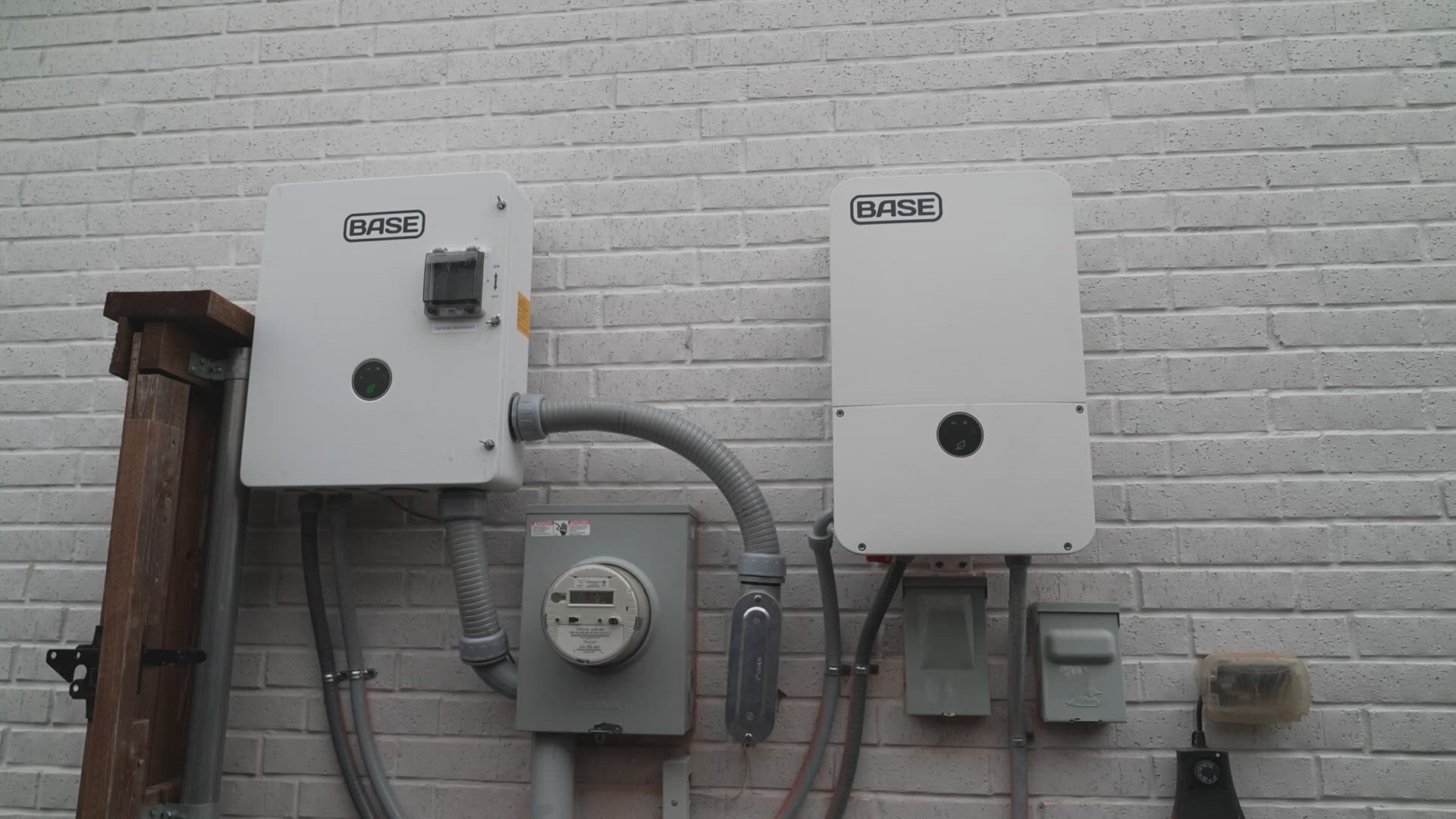DALLAS — An electricity provider that installs backup batteries in customers' homes has expanded its services to include Dallas-Fort Worth.
Base Power, which launched earlier this year in the Austin area, announced in August it is now selling electricity to North Texans. The company's first customers live in Fort Worth, Grand Prairie, and Arlington.
The company says its unique business model ensures customers' lights stay on during outages, saves its ratepayers money, and makes the state's power grid more reliable.
"If you've lived in Texas over the last few years, you've seen two things happen: your power bill has gone up and your electricity has been less reliable," Chief Operating Officer Justin Lopas said. "That's really important to solve."
Customers who sign up with Base Power pay $3,000 to have a battery installed in or outside their homes. Traditional whole-home generators and other battery storage systems generally cost thousands more.
Base Power does not charge a fee for maintenance on its batteries and the system does not require solar panels to charge, though it can integrate with an existing rooftop array.
To balance its books and make money, Base Power retains ownership and control of its customers' batteries and operates as a 'virtual power plant.'
When electricity is plentiful and prices are low, the batteries charge off local distribution lines that already feed homes. When electricity demand and prices soar, the company can generate revenue by combining customers' stored energy and selling that power back to the grid for a profit.
The strategy is simple: buy low, sell high.
If a customer's power goes out, the battery will feed the home, though the system can also reduce strain on the grid by running the home on battery power during the hottest or coldest parts of the day. Those hours are typically when Texans turn on their air conditioners and draw the most electricity.
"When the grid is very stressed, we're able to relieve that stress by discharging the battery into the home to offset the home's load - and then also into the grid to even offset some of the other homes' loads throughout your neighborhood," Lopas said.
Either method will save customers money, Lopas said.
"Our rates are typically 10-20 percent lower than what you'll find with other competitors," Lopas said. "The reason for that is we've got this battery that's able to generate revenue to offset some of that."
The Base Power battery system holds 20 kilowatt-hours of energy. An average Texas home uses about 30 kilowatt-hours per day when temperatures are not extreme.
A 20 kWh system is ideal for discharging when severe weather causes localized outages. If a tree falls on a distribution line, for example, a home draws power from the storage system until workers repair the utility pole.
"Your lights stay on, but your bills don't go up," Lopas said.
After engineers discovered distribution lines could carry electricity to and from consumers, the Public Utility Commission asked companies and universities to come up with innovative applications. The revelation changed the way state leaders think about grid management.
In 2023, the state launched a pilot project allowing virtual power plants to operate for the first time.
Base Power is the first electricity retailer to offer consumers a battery and operate as a virtual power plant, though it probably won't be the last.
"We hope that most or all homes in Texas eventually have batteries," Lopas said. "We think this is the most effective way to have a very high-efficiency, functioning grid.”

